
How Dual-Diagnosis Treatment Addresses Relapse Risks
Introduction
Understanding dual diagnosis—where an individual simultaneously suffers from both a mental health disorder and a substance use disorder—sheds light on the complexities of addressing relapse risks. The interdependency of these disorders necessitates an integrated treatment approach that tackles both conditions concurrently. This article delves into how such integrated care strategies can significantly mitigate relapse risks, providing a comprehensive framework for dual diagnosis treatment.
Understanding Dual Diagnosis
What is dual diagnosis in mental health?
Dual diagnosis in mental health refers to the simultaneous occurrence of a mental health disorder and a substance use disorder (SUD), also known as co-occurring disorders or comorbidity. This phenomenon is quite prevalent, with studies showing that around 50% of individuals who suffer from SUDs also experience mental health issues and vice versa.
The relationship between these two conditions is intricate and often cyclical; mental health issues can lead to substance abuse as individuals seek self-medication to alleviate their psychological distress. Conversely, substance use can exacerbate existing mental health symptoms, creating a challenging situation for effective treatment.
Importance of addressing both conditions
Effective treatment for dual diagnosis necessitates an integrated approach that caters to both conditions simultaneously. This approach may include a combination of therapeutic modalities, such as:
- Cognitive Behavioral Therapy (CBT)
- Dialectical Behavioral Therapy (DBT)
Additionally, medication management and support groups are crucial components of comprehensive care, aiding individuals in their recovery journey.
Due to the complexity of dual diagnosis, individuals often require more intensive and specialized treatment strategies. Addressing both SUDs and mental health disorders together significantly enhances the probability of achieving positive treatment outcomes, helping individuals develop essential coping skills while minimizing the risk of relapse.
Benefits of Dual Diagnosis Treatment
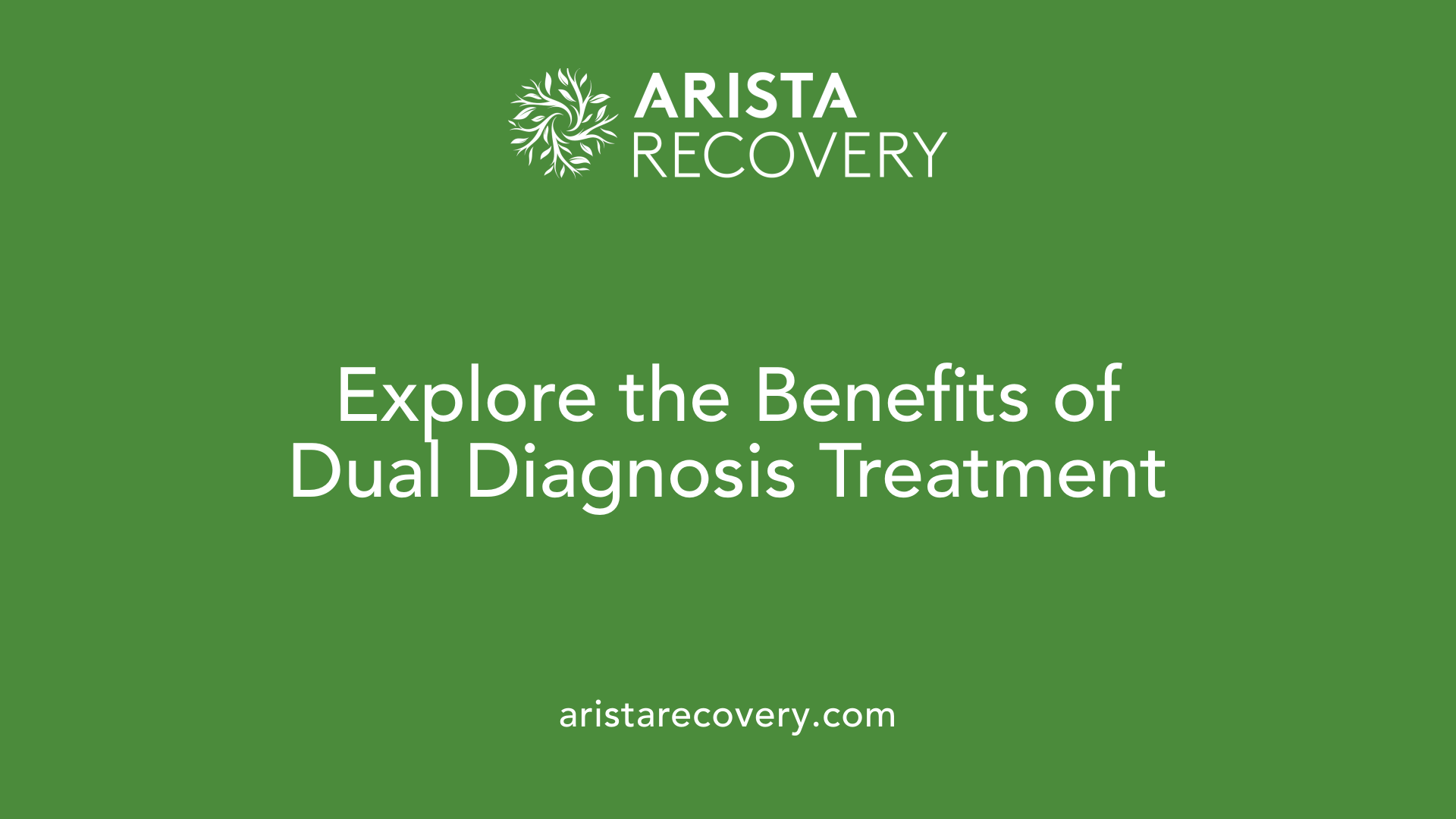
What are the benefits of dual diagnosis treatment?
Dual diagnosis treatment focuses on individuals who have both a mental health condition and a substance use disorder, addressing both issues simultaneously for more effective recovery. This approach is essential because treating these conditions separately may hinder progress and complicate recovery efforts.
Impact of integrated treatment
The benefits of dual diagnosis treatment include:
- Improved quality of life: Patients learn coping strategies and skills to manage their conditions better.
- Reduced relapse rates: By targeting both disorders, integrated treatment reduces the likelihood of relapse due to the interplay of mental health and substance use symptoms.
- Increased motivation: Patients are more likely to engage voluntarily in therapy and recovery strategies.
Overall recovery improvements
This comprehensive treatment leads to better outcomes by considering the complexities of co-occurring disorders. Additionally, individuals are better prepared for life after treatment, equipped with tools and support necessary to maintain long-term recovery.
In summary, dual diagnosis treatment facilitates a higher level of patient care, ensuring that both mental health and substance use disorders receive the attention they need for effective recovery.
Key Elements of Relapse Prevention
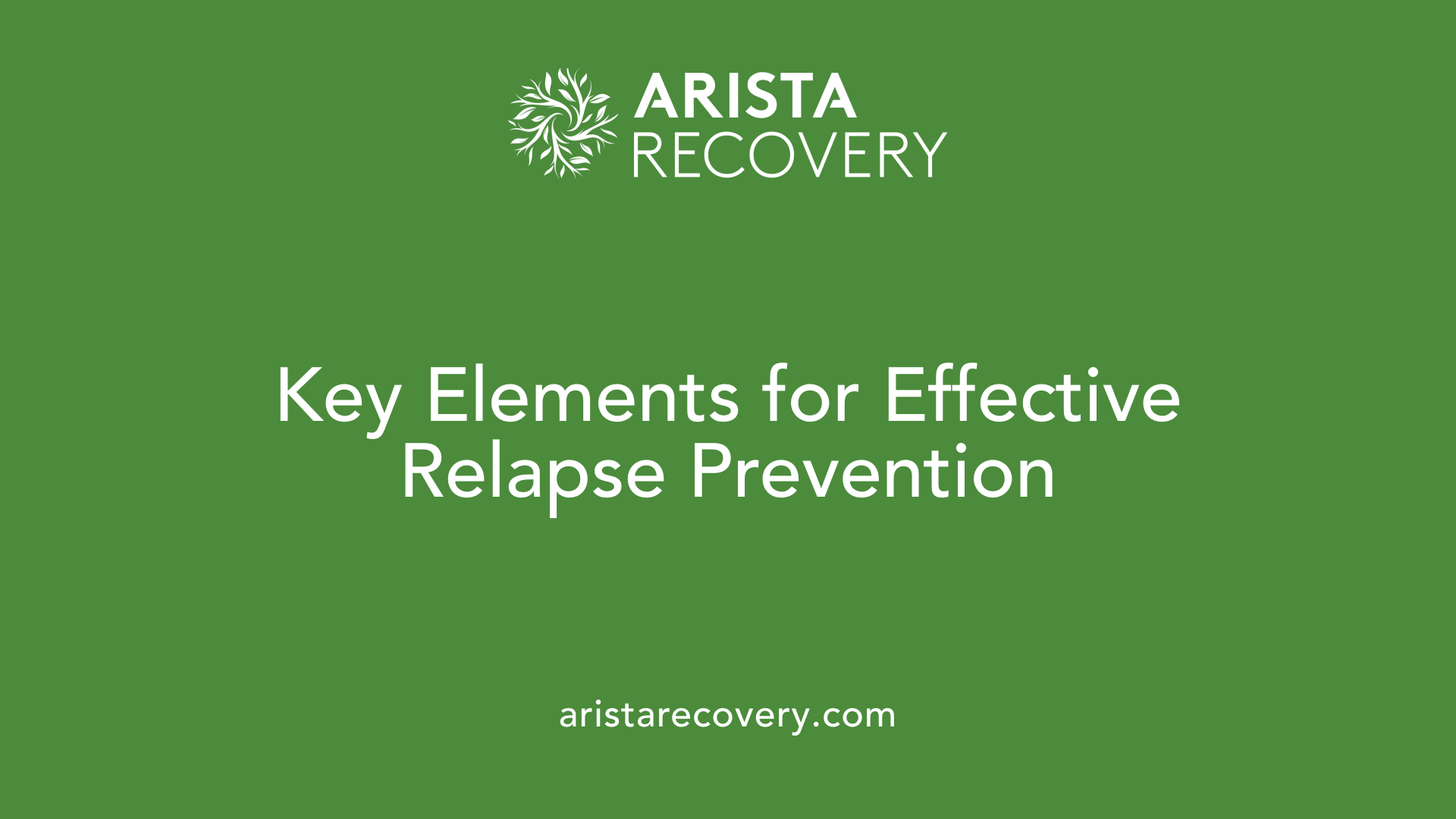
What are the major components of relapse prevention in dual diagnosis treatment?
Effective relapse prevention in dual diagnosis treatment revolves around understanding both immediate determinants and covert antecedents that may lead to relapse.
Immediate Determinants
Immediate determinants are factors that can trigger relapse shortly after a period of abstinence. These are often environments or situations that present high risks. Key elements include:
- High-risk Situations: Specific scenarios that can provoke cravings or temptations to use substances.
- Coping Skills: The ability to manage stress, emotions, and triggers effectively.
- Outcome Expectancies: Beliefs about the consequences of substance use, which can either encourage or deter relapse.
- Abstinence Violation Effect: Feelings of guilt or disappointment that can follow the first slip, often leading to a complete return to substance use.
Covert Antecedents
Covert antecedents are underlying lifestyle factors that predispose individuals to relapse triggers. These involve:
- Lifestyle Factors: Daily habits or routines that promote co-occurring mental health issues and substance use.
- Urges and Cravings: The inherent desire for substances that can emerge unexpectedly, requiring attention and management.
Specific Interventions for Relapse Prevention
To combat these determinants and ancestors, tailored strategies are vital.
- Identifying High-risk Situations: Recognizing environments and social contexts that may lead to temptation.
- Enhancing Coping Strategies: Developing skills for stress management and emotional regulation through therapies like Cognitive Behavioral Therapy (CBT).
- Restructuring Negative Expectancies: Changing beliefs that may rationalize substance use or downplay its risks.
- Holistic Approaches: Combining self-care practices, therapy, and lifestyle changes to build overall resilience and promote long-term recovery.
By integrating these elements and strategies, individuals with dual diagnosis can achieve better outcomes and significantly reduce their risk of relapse.
The Role of Integrated Treatment in Enhancing Recovery
How does integrated treatment improve recovery outcomes for individuals with dual diagnosis?
Integrated treatment significantly enhances recovery outcomes for those facing co-occurring disorders by addressing both mental health and substance use disorders simultaneously. This comprehensive approach acknowledges the intricate relationship between these conditions and treats them as interdependent rather than separate.
Benefits of Simultaneous Treatment
- Holistic Approach: Integrated treatment encompasses various therapeutic methods including medication management, counseling, and ongoing support groups. This means individuals receive well-rounded care tailored to their specific needs.
- Increased Engagement and Adherence: Individuals in integrated treatment programs are more likely to remain engaged in their recovery process. Tailored plans motivate patients to adhere to treatment, ultimately leading to better outcomes and improved quality of life.
- Fewer Relapses: Research shows individuals undergoing integrated treatment experience fewer relapses and reduced psychiatric symptoms. For instance, a study revealed an 88% mean reduction in the number of intoxication days in the first year following treatment.
- Reduced Hospitalizations: Compared to non-integrated care, the rates of hospitalization are significantly lower in those receiving simultaneous treatment, indicating better overall management of both disorders.
By fostering personalized care and addressing the full scope of a person's needs, integrated treatment plays a crucial role in the recovery journey for individuals with dual diagnosis.
Strategies to Prevent Relapse
What are the common strategies and interventions used in dual diagnosis treatment to prevent relapse?
In managing dual diagnosis, effective strategies are essential to prevent relapse. Building a positive therapeutic alliance is crucial; this relationship fosters trust and engagement, leading to improved treatment outcomes. Therapists can utilize evidence-based techniques such as empathy, motivational interviewing, and cognitive-behavioral therapy (CBT), which enhance clients' internal motivation and teach them to recognize and manage triggers.
Relapse prevention training (RPT) is a vital element of the treatment process. This training equips individuals with the skills to identify high-risk situations that may lead to substance use. Clients learn to develop coping strategies that address these challenges, further decreasing the chances of relapse.
An integrated management approach, where multidisciplinary teams address both mental health and substance use disorders concurrently, significantly lowers the likelihood of relapse. This simultaneous treatment ensures no aspect of a patient’s condition is neglected.
Finally, ongoing support from self-help groups and family therapy provides accountability and emotional reinforcement for individuals in recovery, making it easier to navigate the complexities of dual diagnosis and promoting long-term recovery.
Psychosocial and Pharmacological Interventions
Effective therapies and medication approaches
Integrated treatment for dual diagnosis effectively combines various therapeutic modalities to tackle both mental health and substance use disorders.
Some of the effective therapies include:
- Integrated Group Therapy (IGT): Targets both bipolar disorder and substance use, emphasizing treatment adherence and early relapse signs.
- Cognitive Behavioral Therapy (CBT): This method teaches patients to identify and modify harmful thoughts and behaviors, enhancing coping strategies.
- Interpersonal Social Rhythms Therapy (IPSRT): Focuses on maintaining stable daily routines, which helps in mood regulation and substance management.
- Early Recovery Adherence Therapy (ERAT): Aims to maintain abstinence during early recovery phases from bipolar disorders.
In addition to these therapies, medication management plays a vital role. By stabilizing mental health conditions, medications reduce the risk of self-medication with substances. GeneSight testing can help optimize medication plans, tailoring them based on individual genetics.
Impact on relapse risks
Research indicates psychosocial interventions can significantly reduce relapse risks by helping individuals manage triggers, enhance coping skills, and build strong support networks. For instance, studies show that 68% of patients remained alcohol-free six months post-discharge when receiving integrated treatment, demonstrating effective long-term outcomes.
Additionally, ongoing therapy and consistent communication with healthcare providers can provide the necessary support for maintaining long-term recovery and addressing any emerging challenges.
Identifying and Managing Relapse Triggers
Stress and Emotional Triggers
Relapse triggers can stem from various sources, but stress plays a significant role in co-occurring disorders. The interplay of mental health symptoms alongside substance use can create a vicious cycle, making emotional regulation vital for recovery. Negative emotions like sadness, anger, and loneliness are particularly problematic, especially for individuals with mood disorders. Recognizing these feelings and learning effective coping strategies are crucial for preventing relapse. Therapies such as Cognitive Behavioral Therapy (CBT) can assist individuals in identifying patterns in their emotions and behaviors, providing tools to manage stress and emotional turmoil.
Social and Environmental Factors
Social isolation is another considerable risk factor. Withdrawal from social interactions can exacerbate feelings of loneliness and depression, increasing the likelihood of relapse. Building a support network consisting of family, friends, and peers can provide essential emotional support and accountability, significantly lowering relapse risks. Additionally, environmental triggers such as encounters with old friends or locations associated with substance use can provoke cravings. To mitigate these risks, individuals often engage in support groups like Alcoholics Anonymous, which foster community, reduce isolation, and encourage healthy coping mechanisms.
| Triggers | Impact on Recovery | Strategies for Management |
|---|---|---|
| Stress | Heightens risk of relapse due to emotional turmoil | Stress management techniques, CBT |
| Negative emotions | Can drive self-medication and substance use | Emotional regulation strategies |
| Social isolation | Exacerbates feelings of loneliness, increasing relapse | Build a supportive network, engage in groups |
| Environmental triggers | Provokes cravings, leading to relapse | Avoid past use locations, manage peer influences |
Building a Supportive Environment
Importance of Support Networks
A strong support network is vital for individuals recovering from dual diagnosis. Emotional support from family, friends, and professionals offers encouragement and accountability. This connection can diminish feelings of isolation, which is a significant risk factor for relapse. Studies show that having supportive relationships significantly enhances the chances of successful treatment outcomes and long-term sobriety.
Role of Community and Peer Groups
Community and peer support groups, such as Alcoholics Anonymous and Dual Recovery Anonymous, provide a sense of belonging among individuals facing similar challenges. Participation in these groups helps reduce stigma, fosters understanding, and encourages sharing coping strategies. These shared experiences create an environment conducive to recovery, where members can learn from one another and hold each other accountable.
Establishing these networks is especially crucial in the early stages of recovery, as they help individuals navigate emotional and environmental triggers effectively. By building connections within a supportive community, individuals can generate resilience against relapse while pursuing sustained recovery.
Role of Therapy and Counseling
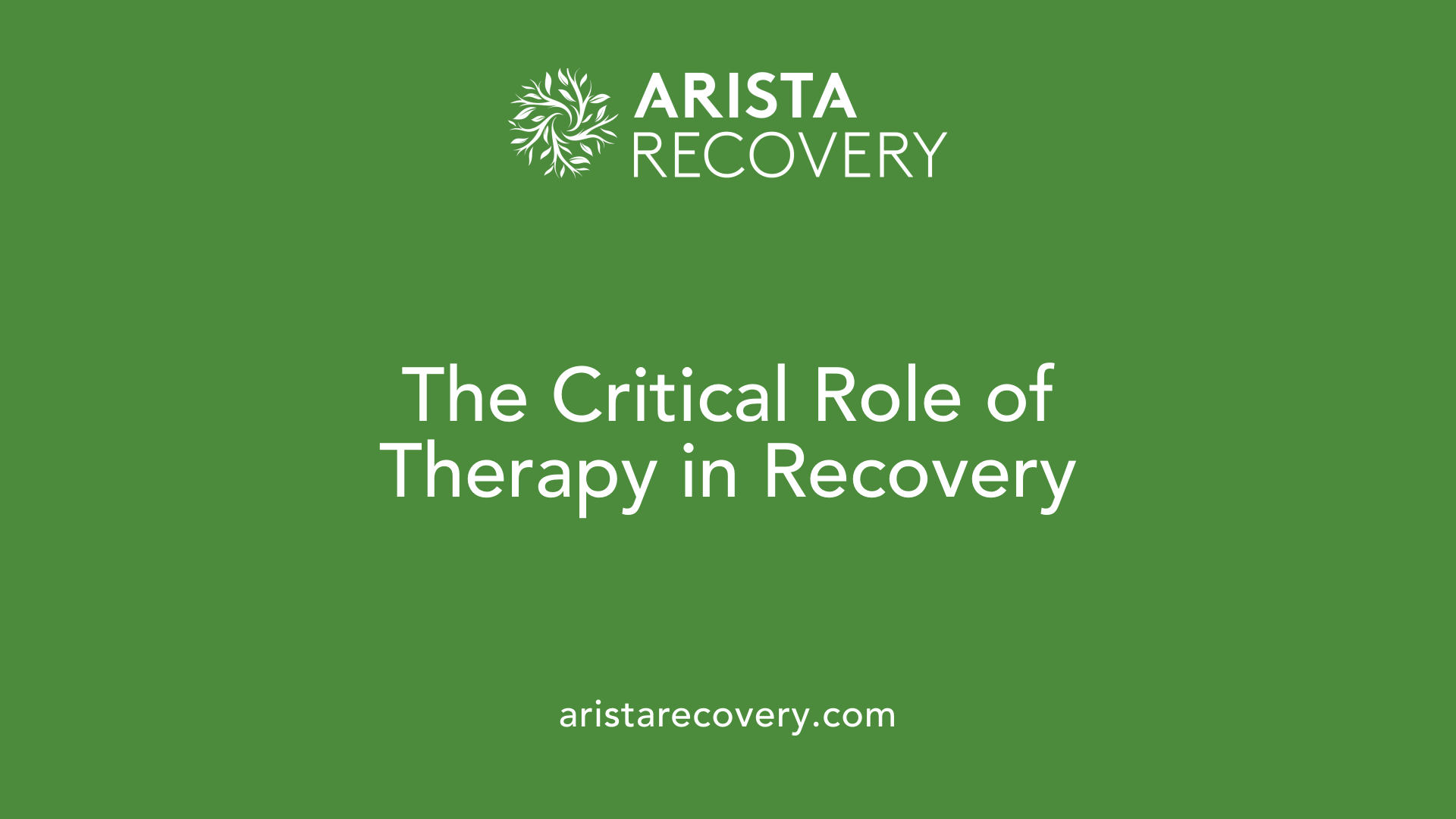
Importance of Ongoing Therapy
Ongoing therapy is a cornerstone of recovery for individuals with dual diagnosis. It provides a safe space to explore thoughts and feelings while addressing the challenges stemming from both mental health and substance use disorders. Regular sessions with qualified professionals help to reinforce coping strategies while also adapting treatment plans to fit the evolving needs of the patient.
Incorporating therapies such as Cognitive Behavioral Therapy (CBT) and Integrated Group Therapy (IGT) ensures that patients learn to identify their triggers and harmful behaviors. These therapies focus on preventing relapses by addressing emotional regulation and navigating stressful situations, ultimately promoting long-term recovery.
Coping Skills Development
Developing effective coping skills is essential for managing stressors that could trigger a relapse. Therapy equips patients with tools to handle negative emotions like sadness, anger, and loneliness, which are common in individuals with dual diagnosis. By emphasizing healthy coping mechanisms, individuals can navigate life's challenges without turning to substances.
Support groups also play a vital role in this development, as they provide community support and shared experiences, enhancing feelings of connection and accountability. Through integrated therapy and consistent counseling, patients are better positioned to maintain sobriety and achieve lasting recovery.
The Impact of Self-isolation and Social Withdrawal
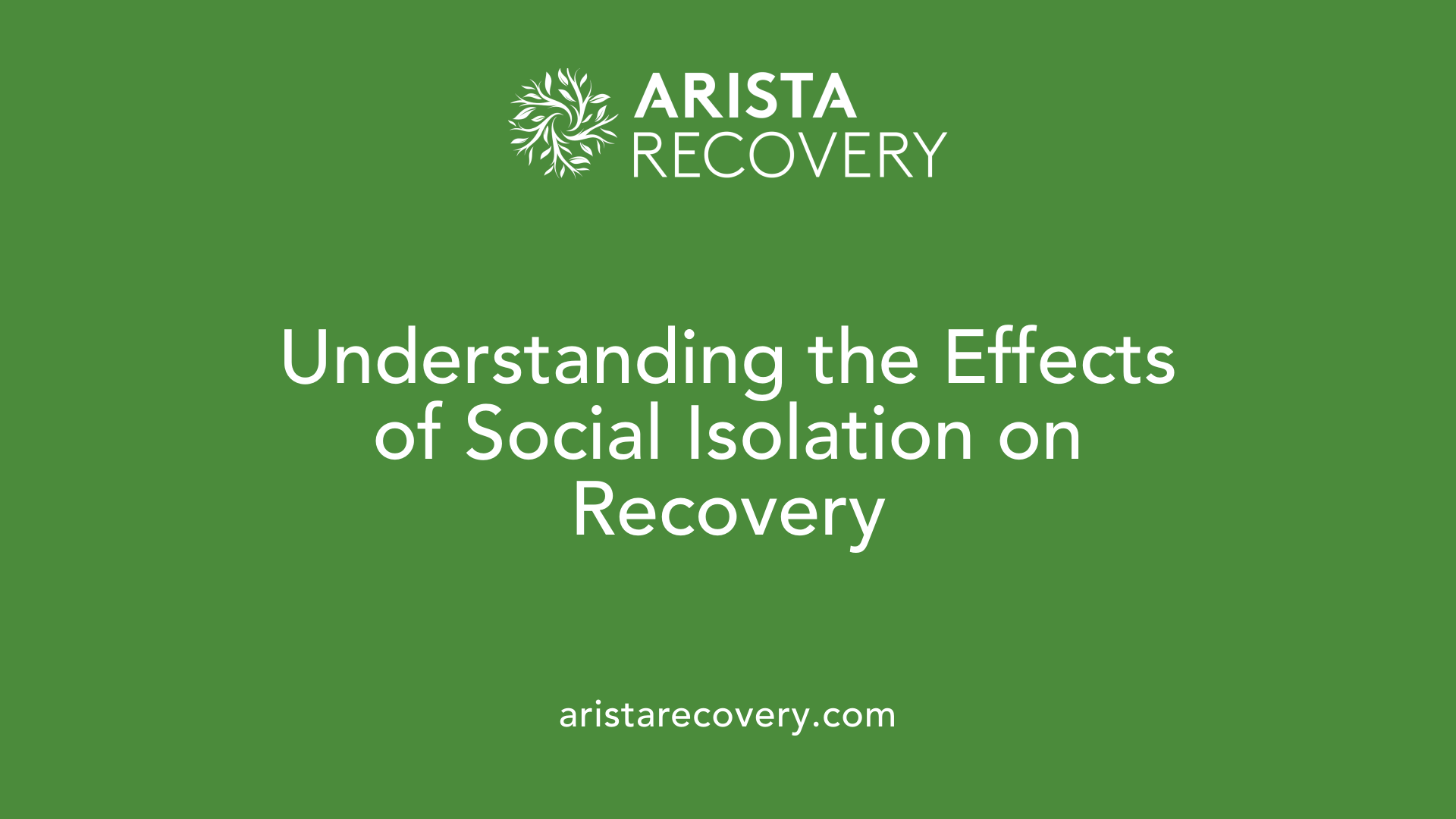
Risks Associated with Isolation
Social isolation is a critical risk factor for individuals with co-occurring disorders, significantly heightening the likelihood of relapse. When patients withdraw from social interactions, they often experience increased feelings of loneliness, depression, and anxiety. These negative emotions can serve as triggers, pushing individuals toward substance use as a coping mechanism.
Moreover, isolated individuals may miss out on crucial emotional support and accountability provided by friends, family, and support groups. This absence can create a vicious cycle where worsening mental health leads to further seclusion and substance use.
Strategies for Social Engagement
Encouraging social connections is vital for recovery. Here are some strategies to enhance social engagement:
- Support Groups: Joining groups like Dual Recovery Anonymous fosters community support and shared experiences, reducing feelings of isolation.
- Scheduled Interactions: Setting regular catch-ups with friends or family can help maintain personal connections.
- Therapeutic Activities: Participating in group therapy sessions combines therapy with social interaction, promoting healing and connection.
- Volunteering: Engaging in community service helps individuals feel connected and adds purpose to their lives, countering feelings of loneliness.
Fostering these connections not only aids in emotional regulation but plays a crucial role in relapse prevention.
Hope for Lasting Recovery
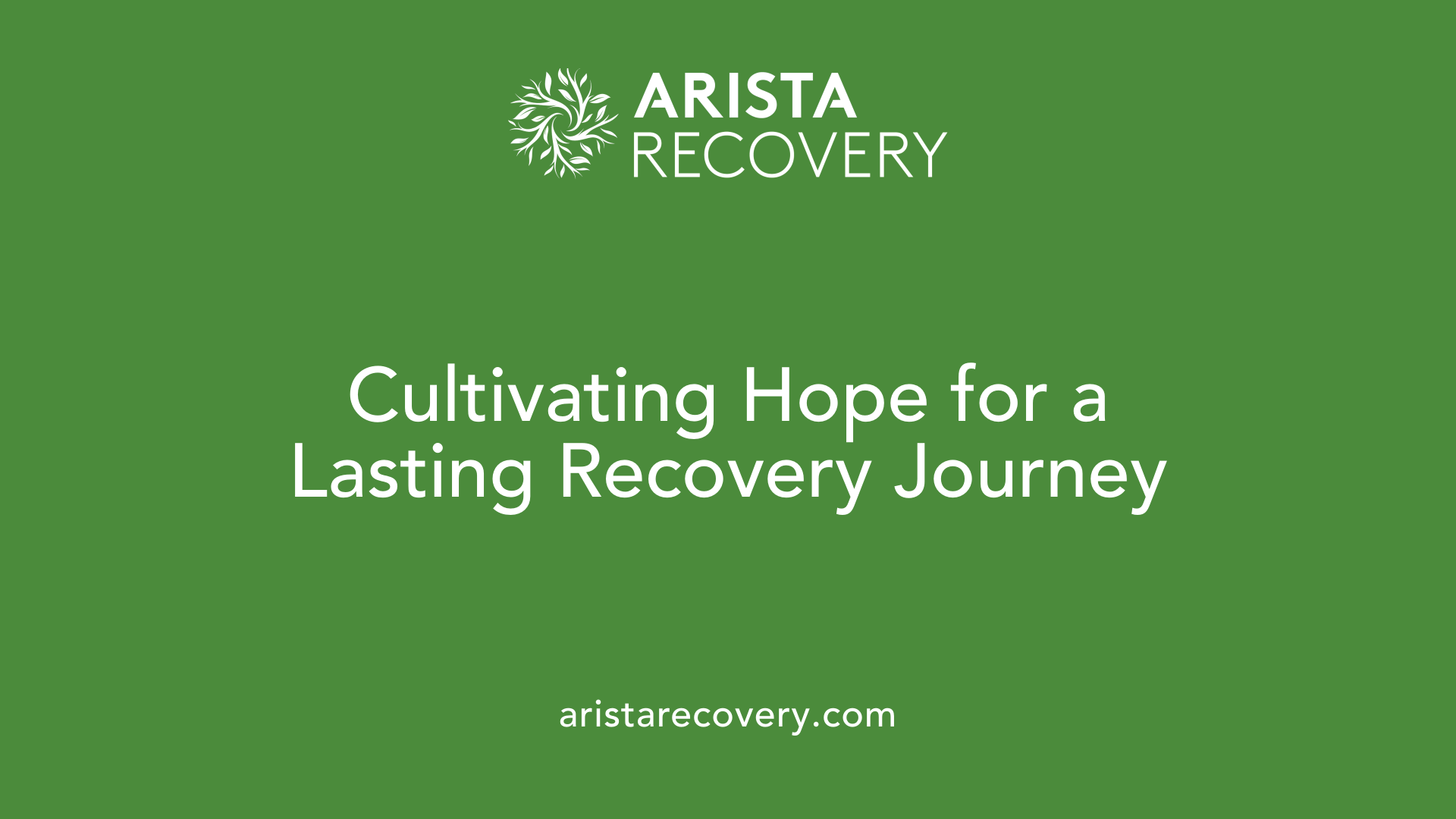
Overcoming Setbacks
Relapses can be disheartening experiences during the recovery journey. However, it is essential to recognize that setbacks are often part of the healing process. Individuals must remember that most can overcome relapses and continue on their path to recovery with diligence and resilience. Support groups like Alcoholics Anonymous or Dual Recovery Anonymous provide vital connections, allowing individuals to share experiences and strategies that foster accountability and motivation.
Long-term Strategies for Success
To achieve lasting recovery, developing effective management techniques is crucial. Stress management and emotional regulation play a significant role in preventing relapse. Creating a personalized action plan to navigate triggers—whether they are environmental, social, or emotional—helps patients maintain their sobriety. Ongoing therapy and medication management provide continuous support and coping strategies, ensuring patients are equipped to face life's challenges. Additionally, fostering a robust support network can significantly reduce feelings of loneliness and isolation often experienced in dual diagnosis cases. Together, these strategies build a foundation for enduring recovery and improved quality of life.
Emerging Trends in Dual Diagnosis Treatment
Innovations in Interventions
Emerging trends in the treatment of dual diagnosis emphasize the importance of tailored interventions that address both mental health and substance use disorders simultaneously. One promising approach is the integration of technology into treatment, such as teletherapy and mobile applications that support ongoing recovery. These have shown effectiveness in providing immediate resources and tools to manage stress and cravings.
Additionally, innovative therapies like the Substance Abuse Management Module (SAMM) focus on harm reduction strategies, equipping patients with skills to navigate challenges of co-occurring disorders. Evidence shows that such personalized treatment plans enhance individual coping mechanisms, leading to better recovery outcomes.
Evolving Integrated Treatment Approaches
Integrated treatment approaches are evolving to be more holistic, ensuring that treatment addresses intertwined symptoms of mental health conditions and substance use. Techniques like Integrated Group Therapy (IGT) and Modified Cognitive Behavioral Therapy (CBT) are increasingly utilized to foster engagement and build adherence to treatment.
Lastly, ongoing collaborative care among healthcare providers is essential for a unified treatment effort, aiming to fill gaps in care and support lasting recovery. Strategies that emphasize community support through peer-led initiatives like Dual Recovery Anonymous are also gaining traction. This comprehensive focus on both types of disorders is proving vital in preventing relapse and enhancing quality of life.
Conclusion
The integration of mental health and substance use disorder treatments in dual diagnosis care proves to be a cornerstone in reducing relapse risks and fostering long-term recovery. By addressing the intertwined nature of these conditions, individuals receive a more comprehensive and individualized care plan, ultimately leading to better health outcomes. Continued innovation and support in this field remain crucial for enhancing recovery journeys and diminishing the prevalence of relapse among those with dual diagnosis.
References
- Preventing Relapse in Patients with Co-Occurring Disorders
- Psychosocial interventions in patients with dual diagnosis - PMC
- The effects of residential dual diagnosis treatment on alcohol abuse
- Dual Diagnosis Treatment: an Overview - Positive Sobriety Institute
- Dual Diagnosis: Definition & Treatment - Cleveland Clinic
- Why Pick Dual Diagnosis Treatment for Co-Occurring Disorders
- Dual Diagnosis Treatment: Addressing Mental Health & Addiction
- Deal with a Dual Diagnosis: Substance Abuse & Mental Health
When mental health challenges and addiction intersect, it can feel isolating. At Arista, we offer compassionate, evidence-based, and trauma-informed care to help you heal, grow, and move forward.
You’re not alone in this.
When mental health challenges and addiction intersect, it can feel isolating. At Arista, we offer compassionate, evidence-based, and trauma-informed care to help you heal, grow, and move forward.
Support that moves with you.
You’ve taken a brave first step. At Arista Recovery, we’re here to help you continue with best-in-class care designed for long-term healing and support.
.webp)






